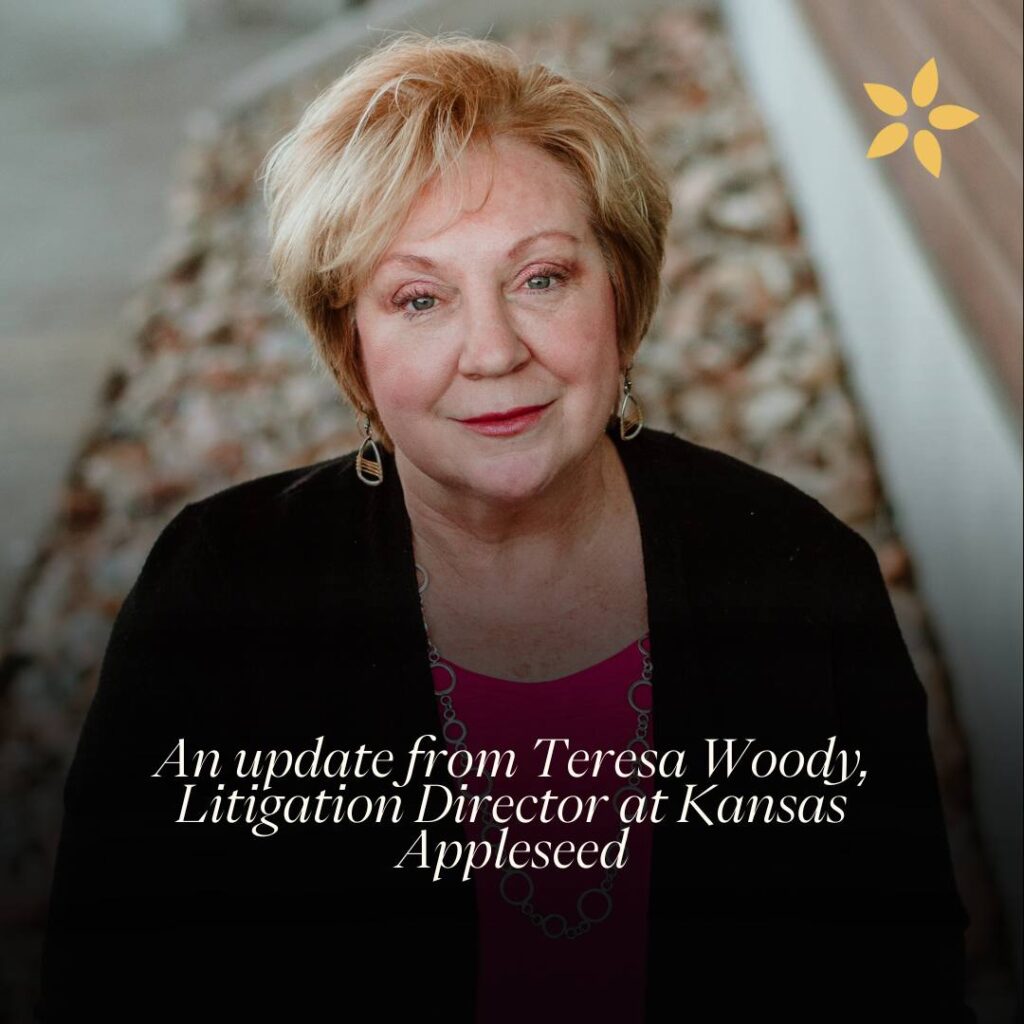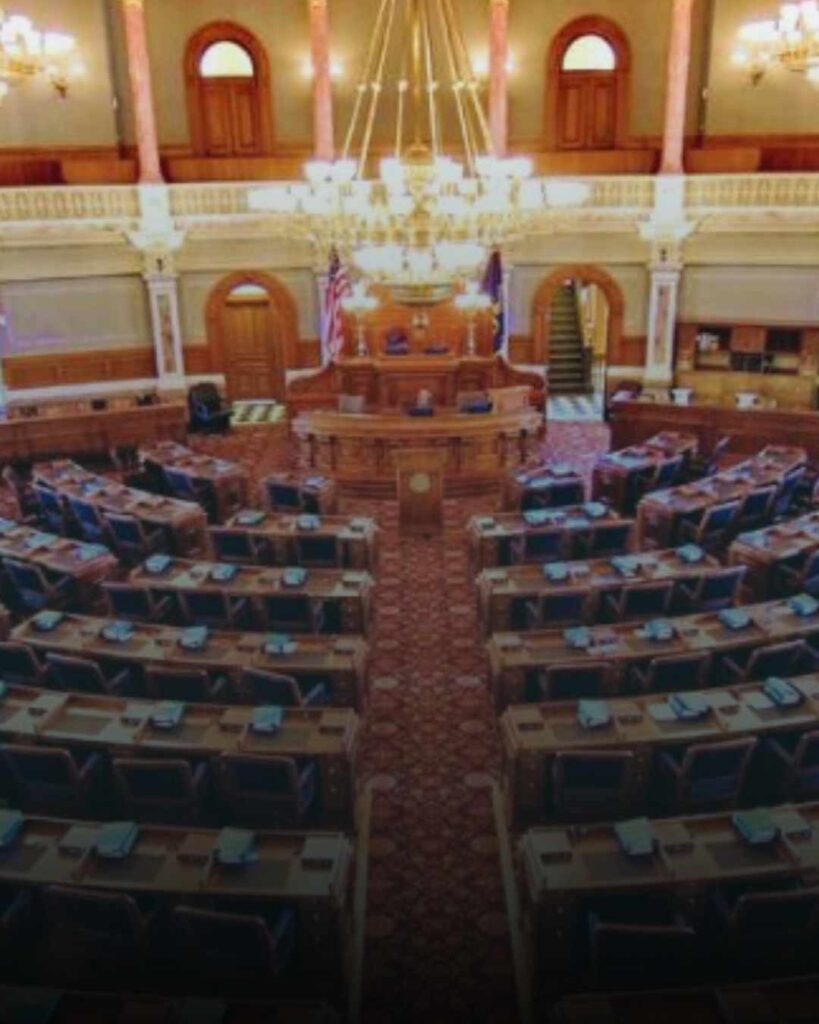
An update from Teresa Woody, Litigation Director at Kansas Appleseed
When I joined Kansas Appleseed in 2019, I wanted to use my skills and expertise to advance justice in our state. I’m so grateful for the opportunities Kansas Appleseed has given me to do just that.
The settlement of Progeny v. City of Wichita was, without a doubt, one of the highlights of my career. While you may have already about the settlement in the news or in our communications, I want to share the impact it will have for so many Wichita residents.
Prior to the settlement, any one officer of Wichita Police Department could nominate anyone to be placed on their Gang List by using very vague criteria, such as the color of clothes a person wore, a tattoo, who they interacted with, or even for attending a funeral where other alleged gang members were present. There was no requirement that the person placed on the Gang List be charged with a crime, or engaged in any criminal behavior.
The WPD did not have to notify a person that they had been placed on the Gang List, and there was no way to challenge the listing, or to get off the list – once listed, you were on for life. Approximately 90% of the individuals on the list are people of color, in much higher percentages than their population in the Wichita community.
The consequences of being listed were severe, including increased police surveillance, a minimum of $50,000 bail for any alleged person offense, harsher probation and parole conditions that the WPD admitted were designed to lead to incarceration, and lost opportunities for jobs and housing.
The settlement, which is the result of three years of vigorous litigation by our team, and the courage of our clients Progeny and four brave individuals who put themselves at risk to be our Named Plaintiffs, greatly narrows the criteria to be placed on the list and focuses on criminal gang activity, provides for notification and a chance to challenge inclusion on the list by appealing to a neutral ombudsman not affiliated with the Wichita police or criminal justice system, removal from the list after two years, among other positive changes.
If the WPD believes a minor between the ages of 13 and 17 meets the criteria to be included on the list, they must notify the juvenile’s parent or guardian, and work out a plan that serves as a diversion, which, if successfully completed, will keep the juvenile from being added to the list. And, importantly, for at least the first three years, a special master will oversee the implementation of the new policies.
Because of this settlement, the numbers of individuals on the list will automatically drop by over two thirds, and for anyone remaining on the list, the new criteria will be applied to see if they should remain on the list, and those who remain on the list will have a chance to challenge their inclusion.
This is a vital change for the Wichita community, and especially for its black and brown members. It was a great joy for me to see the pride our clients feel that they were able to bring about this change, to make sure that others in Wichita, and especially younger people, have opportunities that they themselves were denied because of their inclusion on the gang list.
This is why we do this work at Kansas Appleseed, and thanks to you, we will continue to do it.

